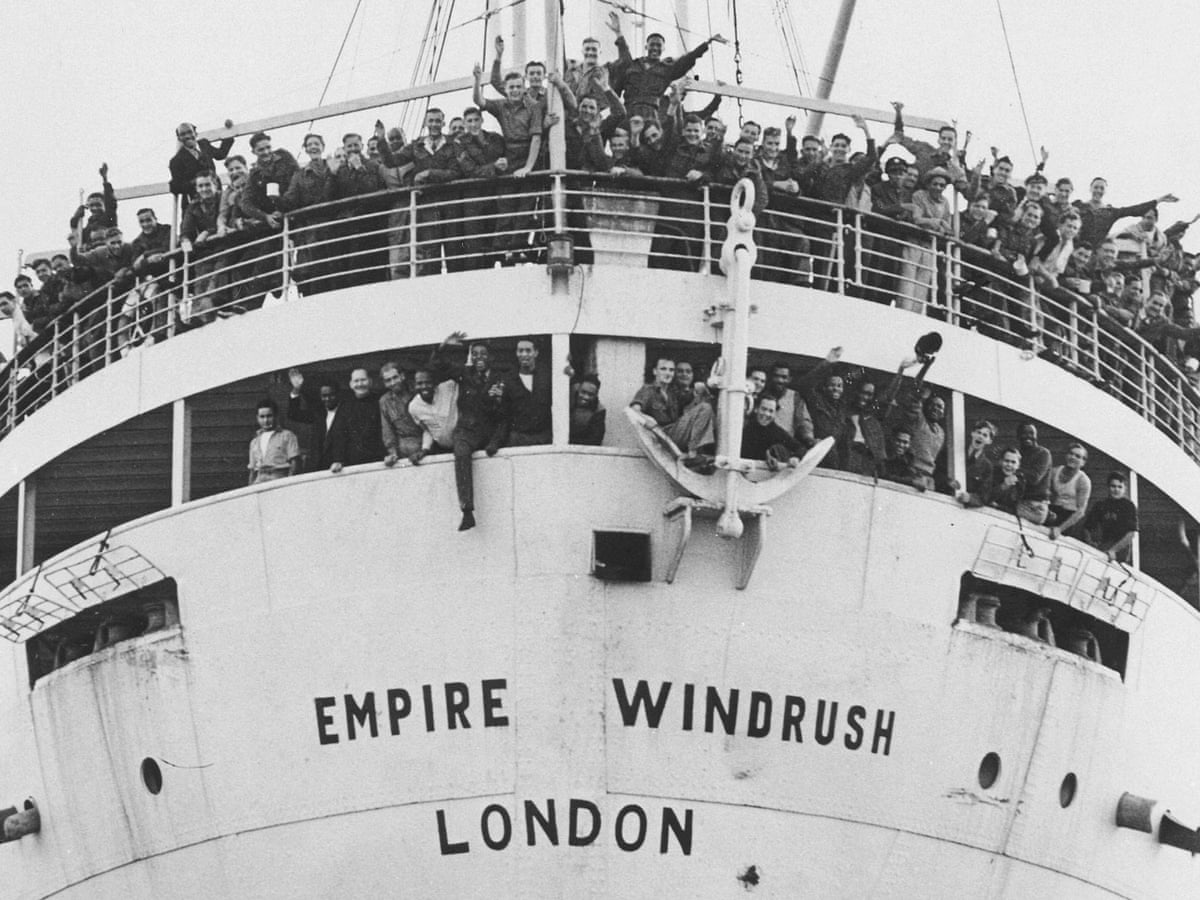Today is Windrush Day. 22 June 2021 marks the fourth national Windrush Day, 73 years to the day since the ship Empire Windrush docked in Tilbury Docks, Essex.
 Benjamin Zephaniah’s terrific story, Windrush Child (Scholastic, 2020), is a moving personal account of the experiences of that generation, told by Lionel, simply and straightforwardly, as his journey through life unfolds.
Benjamin Zephaniah’s terrific story, Windrush Child (Scholastic, 2020), is a moving personal account of the experiences of that generation, told by Lionel, simply and straightforwardly, as his journey through life unfolds.
Lionel spends his early childhood in Maroon Town, Jamaica, surrounded by love, warmth, and colour. He is too young to appreciate how his parents struggle, with limited opportunity. To him life is idyllic. His Dad leaves for England, and eight years later sends for Lionel and Mum to join him.
Life in England is grey, cold, the food and housing are poor, and the family is confronted with casual racism and ignorance on a daily basis, and on several occasions, serious insults and attacks. Yet there are compensations, not just the benefits of healthcare and pensions which Dad rationally explains, but also community, good friends and neighbours, music, the adventure of growing up and finding your way in the world.
An important theme is history and who tells it. Grandma and Brother Brook pass on the stories of Jamaica’s first peoples, and of the Maroons, and the struggle for freedom: history that Lionel is never told in school. As a young adult, his workmate and mentor, Fred, talks about the struggles of everyday people, their absence from the official record, and taking action to put that right:
…we are making history now. The question is, who’s writing it down? Don’t leave it to those people who hunger after power because you’ll only get the history of them.
We follow Lionel as he grows, suffers personal loss, matures, marries, has his own family. The story ends, painfully, with the personal impact of the Windrush Scandal. Lionel has faced many challenges, yet throughout there has been a sense of optimism, of striving for better. The ending is in marked contrast, and although there is a glimmer of hope, it’s not within Lionel’s power to influence.
An appendix from Amnesty International puts Lionel’s experience into the context of legislation and political choices, and urges readers to stand up for the human right to a nationality, an identity, and a home.
This book is the latest in the excellent Voices series, which we have looked at previously here.
